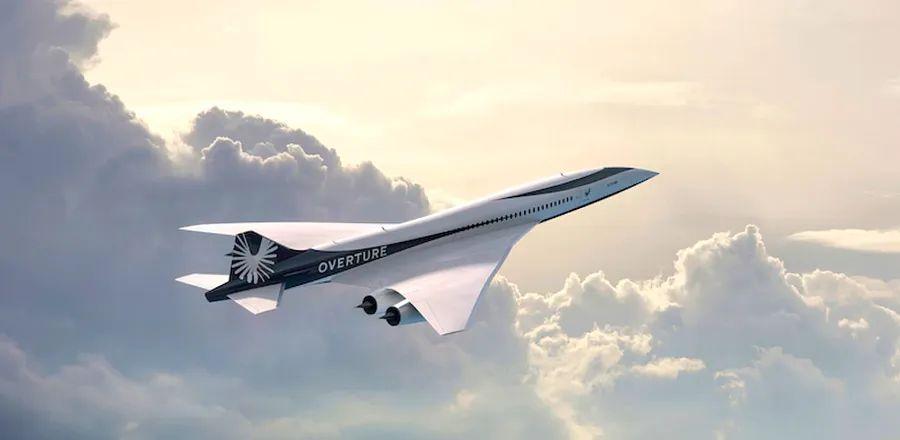Supersonic Flights Are On the Horizon

American Airlines has become the second major U.S. airline this week to place an order for the high-speed Overture jets from Denver-based manufacturer Boom Supersonic.
Following United Airlines' lead last year, American has agreed to acquire up to 20 Overture jets, with an option for an additional 40. In 2021, United invested $3 billion for 15 of Boom's Overture aircraft, with the option to purchase 35 more once they are completed, totaling 50 jets. American has made a nonrefundable deposit for the first 20 aircraft.
Boom Supersonic’s Overture jets, which were initially presented as concept designs and wooden prototypes in 2016, are set to achieve speeds of Mach 1.7, or 1,300 miles per hour, doubling the speed of the fastest commercial aircraft today. Operating at 60,000 feet—twice the altitude of current commercial flights—each jet will accommodate 65 to 80 passengers, offering them sweeping views of the Earth below. (At such high altitudes, passengers can actually witness the curvature of the planet.)
This will significantly shorten flight durations—San Francisco to Tokyo in under six hours (down from the current average of 10), New York City to London in just three hours (compared to around six hours now), and three hours from Los Angeles to Honolulu (instead of up to six hours). Overture is designed to operate on over 600 global routes, with a range of up to 4,890 miles.
According to the agreement, Boom must fulfill performance and safety criteria before delivering any Overture jets. Additionally, it needs to secure certification from the U.S. Federal Aviation Administration (FAA)—currently, commercial flights over Mach 1 are illegal in the United States. If all required standards are achieved, the first Boom Overture aircraft are anticipated to be completed by 2025 and begin carrying passengers by 2029.
When the Boom Overture jets are finally introduced, it won’t be the first occasion for commercial passengers to experience supersonic flight. The Concorde, developed in the 1970s, was the first and only commercial supersonic aircraft at that time, rapidly crossing the Atlantic. It was officially retired in 2003 following the tragic crash of Air France Flight 459 in July 2000 and due to the extremely high operational costs.
However, Boom's founder and CEO Blake Scholl has emphasized a significant difference between the Concorde and his company's supersonic aircraft: Boom is focused on making high-speed air travel accessible to the general public. Scholl envisions a future where supersonic travel is “affordable for passengers, profitable for airlines, and capable of achieving economies of scale with tens of millions of travelers.”
In addition to United and American's agreements with Boom, the Virgin Group and Japan Airlines also placed preorders for their own supersonic all-business-class jets in 2016 and 2017, respectively.
Regarding environmental considerations, Boom has pledged to operate entirely on 100-percent sustainable aviation fuel—jet fuel derived from sustainable sources such as plant oils, municipal waste, and agricultural residue, resulting in up to 80 percent fewer carbon emissions compared to traditional fossil fuel-based jet fuel.
Reporting contributed by Jenny Adams.
Evaluation :
5/5



